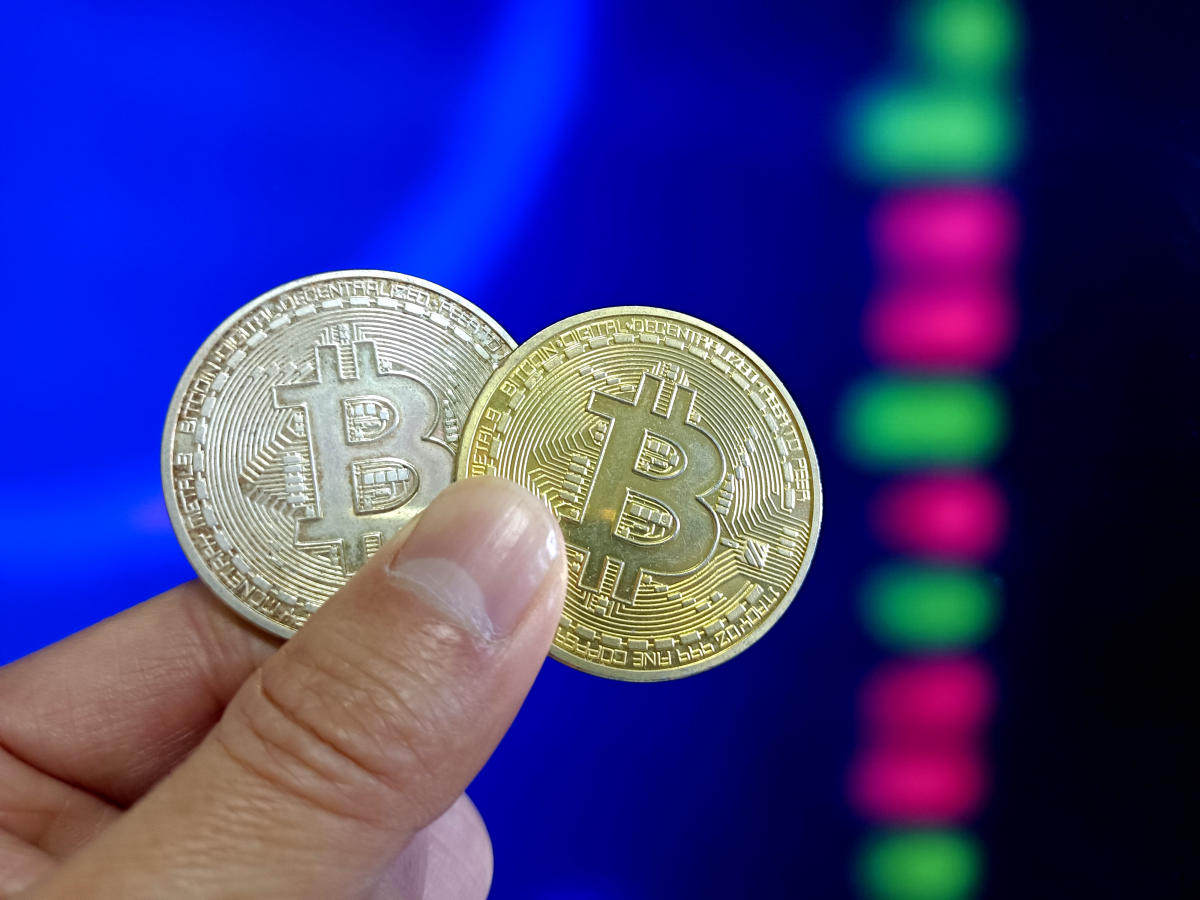Good morning. It's Monday, March. 04 and we're covering easy ways to save money on gas, medical debt affecting your credit score, people under the most financial stress, and much more. | First time reading? Sign up here. | Stock Market Update | | | | | Market Performance: March 01, 2024. | The Nasdaq Composite rose to an all-time high Friday, surpassing its 2021 record, as investors bet that megacap technology stocks were the best way to play slowing inflation and a coming artificial intelligence boom.
The tech-heavy Nasdaq advanced 1.14% to 16,274.94, notching a new high of 16,302.24 during the session. A day earlier, the index closed at its first record since November 2021. The S&P 500 added 0.80% to 5,137.08 for its first close above the 5,100 threshold. The Dow Jones Industrial Average gained 90.99 points, or 0.23%, to 39,087.38.
Chipmaking giant Nvidia , which has led the tech rally by surging more than 260% over the last 12 months, was up another 4% Friday. Meta also jumped more than 2% for the day.
On a weekly basis, the Nasdaq added 1.74%, while the S&P 500, which also popped to a record close on Thursday, advanced 0.95%. Both indexes notched their seventh positive week over the last eight. The 30-stock Dow is the laggard, down 0.11%. |
| |
| | |
| | Financial Maverick Insights | | | | | Easy Ways to Save Money on Gas | If the cost of car ownership is squeezing your wallet, there are several ways to ease the pressure. You can implement a few strategies to save money on gas at the pump, while driving, and even through proper maintenance to get the best gas mileage out of your vehicle.
Here's how to get started with saving money on gas.
Buy the right fuel
Most vehicles perform well on regular unleaded regular gas. Manufacturers might recommend premium gas for certain vehicles with turbochargers or specific types of engines, but the majority of drivers don't need to pay extra for premium fuel. Check your owner's manual to find what the manufacturer recommends for your car. Unless it says premium gas is required, you're probably good to buy regular gas, which is cheaper than its premium version.
Use a gas price app
Use your smartphone to save at the pump. Gas price apps compare gas prices in an area to show you which stations have the lowest prices. Several apps are free to use and let you search by your specific location or a city or ZIP code, as well as criteria like type of fuel and payment method. Taking a few minutes to compare local prices could save you a small chunk of change each month.
Pay cash
Many gas stations advertise a cash price that is cheaper than the credit card price. So don't be surprised if the price you pay for using a credit card isn't what's on the marquee. At some stations, using a debit instead of a credit card will also get you the cash discount. If you opt for a debit card, make sure you're getting the discount before you start pumping since not all stations allow this.
Screw the gas cap on
To get the most out of your tank of gas, be sure to screw the gas cap on correctly. Turn it until you hear a click. If the gas cap isn't sealed properly, up to 30 gallons of gasoline a year could be evaporating through a poor seal. It may also trigger a check-engine light on your dashboard. Many newer cars have a capless fuel-filler system, but an imperfect seal of its spring-loaded flap can both leak gasoline fumes and cause a warning light. |
| |
| | |
| | | | | | Does medical debt affect your credit score? | Medical debt is a prevalent issue in the U.S. An estimated 41% of Americans have some sort of healthcare debt, according to a 2022 report from the Kaiser Family Foundation. If you also belong to this group, you may worry about the effect your medical bills can have on your credit.
Fortunately, healthcare debt doesn't carry as much weight as other types of debt and it usually doesn't affect your credit unless it's sent to a collection agency. CNBC Select explains how medical bills can influence your credit score and what you can do if you're dealing with this type of debt.
How medical debt can impact your credit score
Fortunately, your healthcare bills won't harm your credit, as long as you don't wait too long to settle them. Most of the time, you're dealing with the medical provider directly and they aren't likely to report your payment activity (or lack thereof) to the credit bureaus. This means that while you owe the provider, your credit report won't reflect this debt. | How to check for medical debt on your credit report
If you're worried you may have medical debt on your credit record, don't wait to have your fears confirmed by a debt collector. By law, you're entitled to a free copy of your credit report from each bureau once a year. Alternatively, you can use a free credit monitoring service. CNBC Select recommends CreditWise® from Capital One which allows you to check accounts and balances on your TransUnion credit report, including closed accounts and collections. Note that you don't have to be a Capital One cardholder to use the service.
Medical debt can get extremely expensive, putting your financial well-being at risk. While you usually have some more time to settle your medical debt before it starts harming your credit, you don't want to let the situation spiral out of control. |
| |
| | |
| Real Estate News |  | Celebrity real estate agent Mauricio Umansky warns 'perfect storm' of housing unaffordability brewing | The Agency co-founder and CEO Mauricio Umansky detailed how the lack of supply in the housing market is aiding the 'perfect storm' of unaffordability |
|
|
|  | The US housing market is slowly thawing, but 91% of homes are still overvalued, Fitch says | "High mortgage rates and elevated home prices, which aggravate the affordability issue, continue to moderate the pace of this normalization." |
|
|
|  | Don't Do These 35 Things If You Want to Sell Your House | When the housing supply is tight you don't want to make any mistakes selling a home. Definitely don't do these things. |
|
|
| | Personal Finance Tips |  | Where are people under the most financial stress? See the list of top 10 American cities | Chicago and Houston rank as the cities with the most people in financial distress, according to a new report from the personal finance site WalletHub. |
|
|
|  | Personal finance expert predicts an 'entrepreneurial boom like we've never seen before' | Ken Coleman of Ramsey Solutions predicts an unprecedented "boom" in entrepreneurship on FOX Business' 'The Big Money Show.' |
|
|
|  | With bitcoin above $60K, does it deserve a place in your portfolio? | The price of bitcoin has surged to levels not seen since November 2021 as investors pour money into new bitcoin ETFs. Here's what investors should know. |
|
|
| | Alternative Investing |  | The global financial system is the 'net new buyers' this cycle — Chainlink founder | Chainlink founder Sergey Nazarov pointed out the significant new crypto buyer group while eyeing off the next development in the crypto market, real-world asset tokenization. |
|
|
|  | Salesforce earnings give insight into AI investments | The company unveiled its Einstein Copilot earlier this week and teased "even more AI innovation" for the near future |
|
|
|  | Tech billionaires on the mat: What jujitsu reveals about Mark Zuckerberg, Elon Musk, and Silicon Valley | In June, after it was revealed Mark Zuckerberg's Meta (META) was creating Threads — a rival to X, formerly known as Twitter — Elon Musk tweeted "I'm up for a cage match if he is lol." That spurred a wave of media discourse fueled by trash-talking between the two tech moguls. |
|
|
|
|
| | Have you been under financial stress in your current city? | | | Reach Over 100,000 Financial Mavericks | Advertise with Financial Maverick to get your brand in front of the Financial Gurus in the world. The Mavericks are high-income and highly knowledge people who are always looking for an interesting product or tool. | | | Share Financial Maverick | Calling all Financial Mavericks! To help out a family and friend in need by sharing this newsletter. Tell you what if you ever wanted to be a Hero, Financial Guru, or a Nice Person this is your time! | | | DISCLAIMER: None of this is financial advice. This newsletter is strictly educational and is not investment advice or a solicitation to buy or sell any assets or to make any financial decisions. Please be careful and do your own research. | |
|
No comments:
Post a Comment